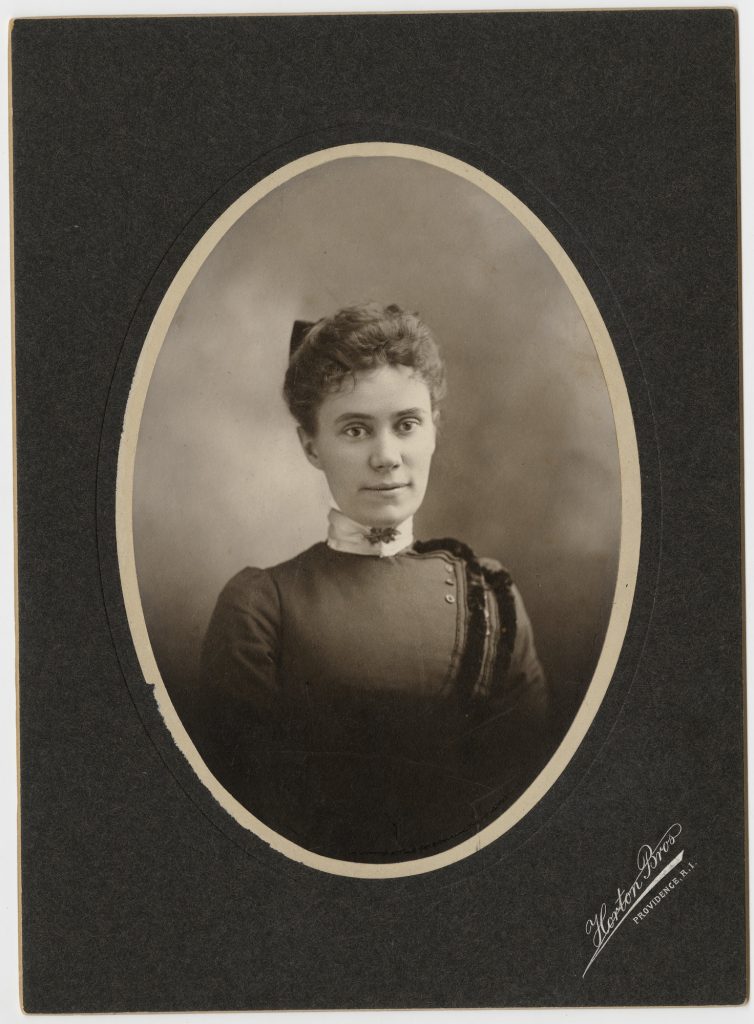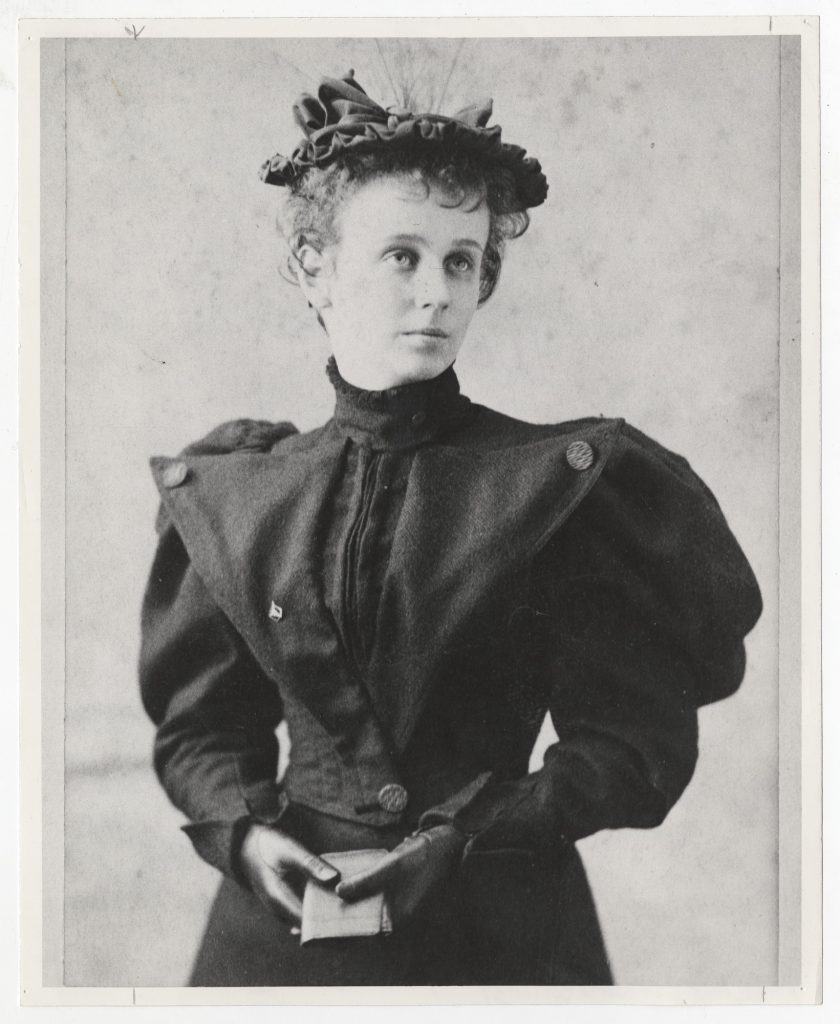Mary Emma Woolley, ‘May’ to family and friends, was the President of Mount Holyoke College from 1901 to 1937. She was born on July 13, 1863 in South Norwalk, Connecticut to Joseph Woolley, a Congregational minister, and Mary Woolley, a schoolteacher.
She attended Mrs. Fannie Augur’s school in Meriden, Connecticut until her family moved to Pawtucket, Rhode Island in 1871, when she enrolled in Providence High School. In 1882, she began attending Wheaton Seminary in Norton, Massachusetts, graduating in 1884 and serving as a faculty member there from 1885 to 1890. Woolley became the first woman to attend Brown University in the fall of 1891. She received her bachelor’s degree in 1894 and her master’s in 1895.
She served as an instructor, associate professor, and professor at Wellesley College from 1895 to 1899, teaching for and acting as chair of the Biblical History and Literature Department. During this period, Woolley met and formed what would be a life-long partnership with Jeannette Augustus Marks, then a student at Wellesley.
In 1900, Mary Woolley accepted the position of President of Mount Holyoke College and took office in May of 1901. Her achievements included hiring more faculty with advanced degrees, introducing honors work into the curriculum, expanding the graduate program, successfully raising funds for the College, and easing Mount Holyoke’s religious exclusiveness.
She was an active member of many organizations, serving as the first woman senator of Phi Beta Kappa, chair of the College Entrance Examination Board, and President of the American Association of University Women.
Woolley served as a member of the Foreign Missions Conference of North America Educational Commission to China, which studied Christian higher education in that country and she participated in several major conferences, including the Institute of Pacific Relations conventions. In 1932, President Herbert Hoover appointed her to serve as the only woman delegate from the United States to the Conference on Reduction and Limitation of Armaments held in Geneva, Switzerland.
She retired as President of Mount Holyoke in 1937 after a divisive controversy over the selection of her successor. She then lived at Jeannette Marks’ family home, Fleur de Lys, in Westport, New York and remained active, organizing the Committee on the Participation of Women in Post-War Policy during World War II, joining the National Woman’s Party, and endorsing the Equal Rights Amendment. In 1944, Woolley suffered a cerebral hemorrhage that left her partially paralyzed. She died on September 5, 1947 in Westport at the age of eighty-four.
Jeannette Augustus Marks was born in Chattanooga, Tennessee on August 16, 1875. William Dennis Marks, her father, was a professor of engineering at the University of Pennsylvania and president of the Philadelphia Edison Company after meeting and marrying her mother, Jeannette Colwell.
Jeannette was educated at boarding schools in the United States and Europe and went on to attend Dana Hall and then Wellesley College where she received her B.A. in 1900.
It was here that Jeannette met Mary Emma Woolley, then a Wellesley professor, who was to remain her partner for the next fifty years. Soon after her inauguration as president of Mount Holyoke, Mary appointed Jeannette as an instructor in the English department, which she would eventually chair.
While at the College, Jeannette Marks founded the Play and Poetry Shop Talks lecture series inviting notable authors and poets to Mount Holyoke to discuss modern literature. She also started the Laboratory Theatre in 1928, which would become her primary focus at the College until her retirement in 1941.
Jeannette began writing short stories while a student at Wellesley and continued to publish throughout her career. Most notable among her writings were The Family of the Barretts, a biography of the family of Elizabeth Barrett Browning, and The Life and Letters of Mary Emma Woolley. She also conducted a great deal of research on narcotics and published several books pertaining to drug addiction.
She was a member of the National Woman’s Party, the first organization to support the Equal Rights Amendment. Her political activities also included advocacy for Sacco and Vanzetti and Eugene V. Debs. While it is unclear if Marks identified herself as a socialist, she corresponded with and donated money to local and national socialist causes throughout the 1920s.
After her retirement in 1941, she moved permanently to her childhood home, Fleur De Lys, with Mary Woolley. She was Woolley’s primary caretaker during the final years of her life. Jeannette Marks died on March 15, 1964 in Westport, New York at the age of 88.

